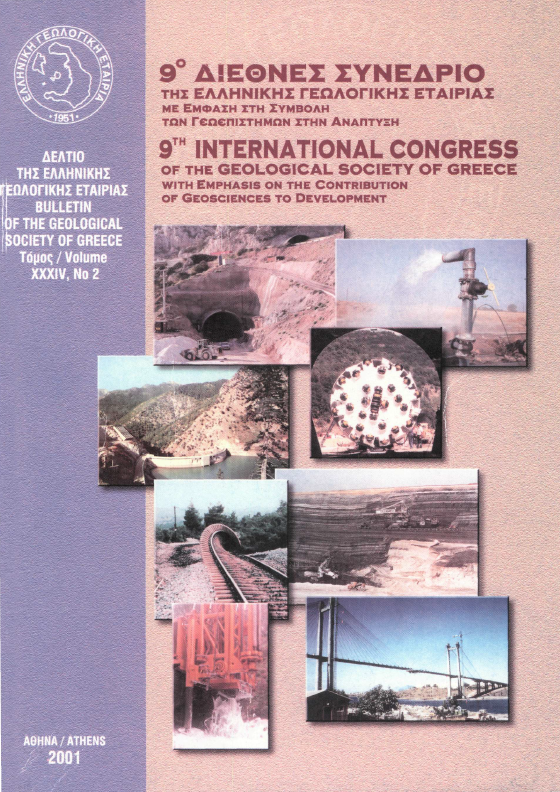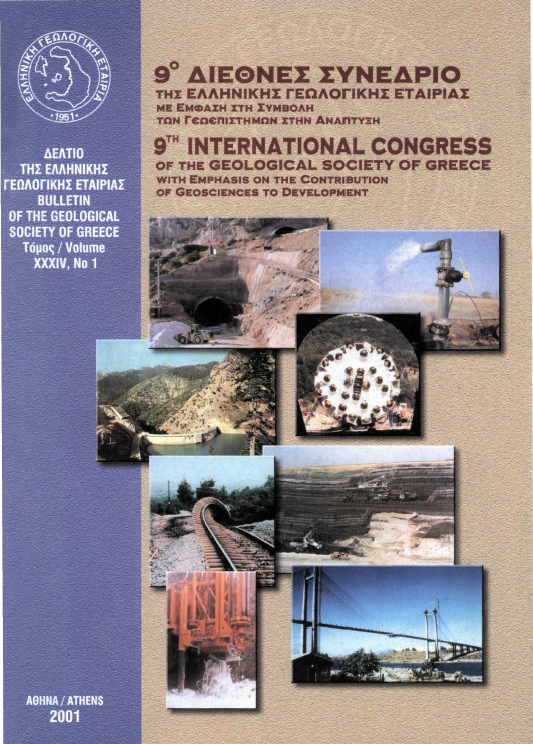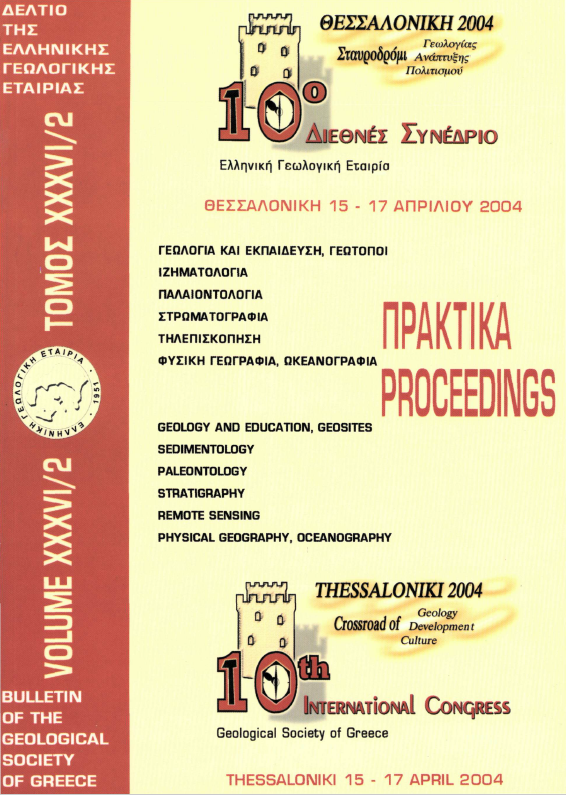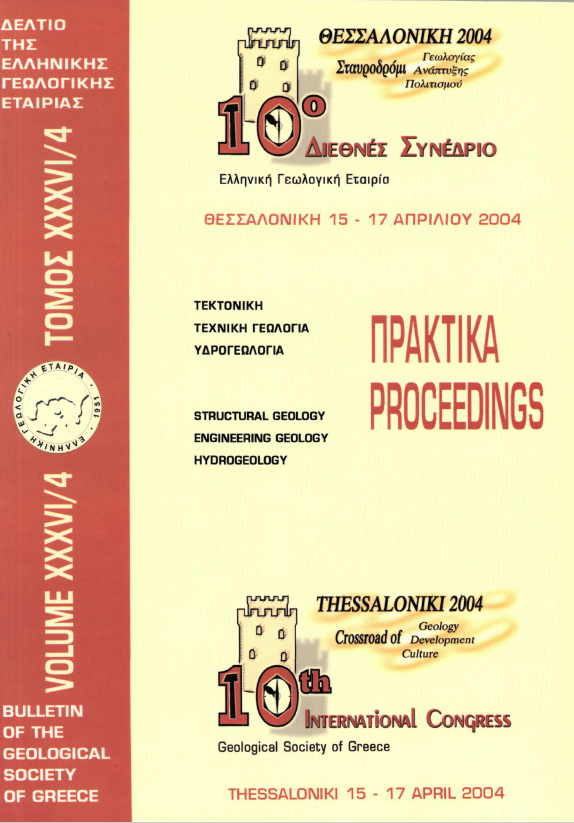The presence of marin Pliocene sendiments in the Mesohellenic Trough (Pramoritsa banks, Grevena, Greece)
Résumé
Detailed lithostratigraphic study of the postalpine deposits that build Pramoritsa river banks - tributary of Aliakmonas river- north of Grevena (Greece), showed that the marine molassic deposition did not cease in the Upper Miocene but continued in the Lower Pliocene, too. Systematic sampling revealed abundant pelagic and benthic fossils, the presence of which {Bulimina exilis, Bulimina costata, Neogloboquadrina acostaensis, Globigerinella pseudobesa, Globoquadrina venezuelana, Neoeponides schreibersii, Pulleniatina obliquiloculata, Dorothia gibbosa) proves that marine facies went on, at least, until the Lower Pliocene and that the depositional environment was characterized as coastal with warm waters. According to the Nannoplankton flora correlated with standard nannoplankton -zones-subzones NNllb Amaurolithus delicatus, Discoaster quinqueramus) and NN13 (Ceratolithus rugosus) of MARTINI, 1971 and OKADA & BUKRY, 1980 during the Late Miocene -Early Pliocene. Besides, some characteristics of the Pliocene sediments are described, based on macro- and microscopic observations.
Article Details
- Comment citer
-
ΦΟΥΝΤΟΥΛΗΣ Ι., ΜΑΡΚΟΠΟΥΛΟΥ-ΔΙΑΚΑΝΤΩΝΗ Α., ΜΠΑΚΟΠΟΥΛΟΥ Α., ΜΩΡΑΪΤΗ Ε., ΜΙΡΚΟΥ Μ. Ρ., & ΣΑΡΟΓΛΟΥ Χ. (2018). The presence of marin Pliocene sendiments in the Mesohellenic Trough (Pramoritsa banks, Grevena, Greece). Bulletin of the Geological Society of Greece, 34(2), 603–612. https://doi.org/10.12681/bgsg.17108
- Rubrique
- Stratigraphy

Ce travail est disponible sous licence Creative Commons Attribution - Pas d’Utilisation Commerciale 4.0 International.
Authors who publish with this journal agree to the following terms:
Authors retain copyright and grant the journal right of first publication with the work simultaneously licensed under a Creative Commons Attribution Non-Commercial License that allows others to share the work with an acknowledgement of the work's authorship and initial publication in this journal.
Authors are able to enter into separate, additional contractual arrangements for the non-exclusive distribution of the journal's published version of the work (e.g. post it to an institutional repository or publish it in a book), with an acknowledgement of its initial publication in this journal. Authors are permitted and encouraged to post their work online (preferably in institutional repositories or on their website) prior to and during the submission process, as it can lead to productive exchanges, as well as earlier and greater citation of published work.






